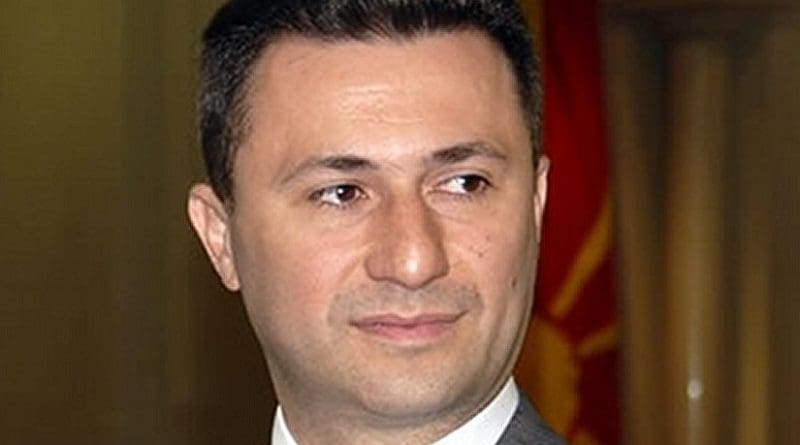Macedonia: Gruevski Isolated In Demanding New Elections
By Sinisa Jakov Marusic
The main opposition Social Democrats and Macedonia’s ethnic Albanian parties have dismissed VMRO DPMNE leader and former Prime Minister Nikola Gruevski’s call for another general election.
Macedonia’s opposition Social Democrats, SDSM – who have obtained a majority in parliament to form a new government – have ruled out another early general election as a way out of the current crisis.
Replying to repeated calls from VMRO DPMNE leader Nikola Gruevski over the weekend for a fresh election, presumably in May, together with the local polls, the SDSM said this would only allow Gruevski to prolong the crisis further.
“Macedonian citizens don’t want new parliamentary elections! They have already supported the concept of one society for all [in the December 11 early elections],” the SDSM said.
“That won’t happen! We are working on peaceful transfer of power as soon as possible. We still hope the President will retract his unconstitutional decision, as the best possible option for resolving the stalemate, but we have other options which we hope won’t be necessary,” SDSM spokesperson Petre Shilegov said.
Speaking at the weekend for Croatian Radio and Television, VMRO DPMNE head Gruevski offered two solutions.
One is for the SDSM to denounce the so-called “Albanian platform” – the conditions set by ethnic Albanian parties to join a new government – while the other was to hold fresh elections.
Gruevski said new elections would serve as a referendum for or against the platform pushed by the country’s ethnic Albanian parties.
“The goal of this offer is prolongation of the crisis because to put it simply, Gruevski does not want to go. Even if we go to new elections, which we would win, what makes you think that [President] Ivanov would then award the mandate to the opposition?” Shilegov asked.
President Ivanov on Wednesday refused to award a mandate to Zaev and the SDSM, despite their majority in parliament, claiming their alliance with Albanian parties and acceptance of the “Albanian platform” had the potential to “destroy the country”.
Zaev had earlier accepted the main demands of the ethnic Albanian parties as contained in the agreed platform.
Zaev, who has the support of all three ethnic Albanian parties represented in parliament, then accused Ivanov of attempting a coup.
Macedonia has not had a new government for over two-and-a-half months, since the December 11 early elections failed to produce a clear winner.
Meanwhile, the other key Albanian players have also opted against the idea of another snap poll.
The main Albanian party in Macedonia, the Democratic Union for Integration, DUI, last week strengthened its resolve to participate in a new SDSM-led government, saying it was ready to join Zaev’s government, not just support it.
“New elections are not the way out because they would only deepen the crisis. The formation of a new political government that would have the support of the majority of citizens is the best possible option,” the DUI said on Monday.
Another Albanian party, Besa, as well as the Alliance for Albanians, have said since January that they would boycott any attempt at repeat elections.
The two parties, which both support Zaev’s bid to form a new government, say their stands on this issue have not changed.
Tensions – high since the election in December – soared further last Monday after Zaev called on President Ivanov to offer him a mandate to form new government, which he refused to do.
VMRO DPMNE party supporters have meanwhile been staging daily street protests denouncing Zaev’s announced government in Skopje and in other towns. The protests were set to resume on Tuesday.
Like VMRO DPMNE, the demonstrators claim a potential coalition government between Zaev’s Social Democrats and the Albanian parties would endanger Macedonia’s sovereignty.
Zaev has insisted that the street protests are a cover designed to allow Gruevski to cling onto power and so escape justice.
The Albanian parties have denied planning to destroy Macedonia, saying they mainly want improved status for the Albanian language and more equal access to the country’s resources in the budget.
– See more at: http://www.balkaninsight.com/en/article/macedonia-s-gruevski-alone-in-calling-for-fresh-elections-03-06-2017#sthash.TG0qn2Nk.dpuf

